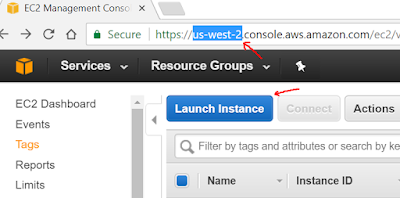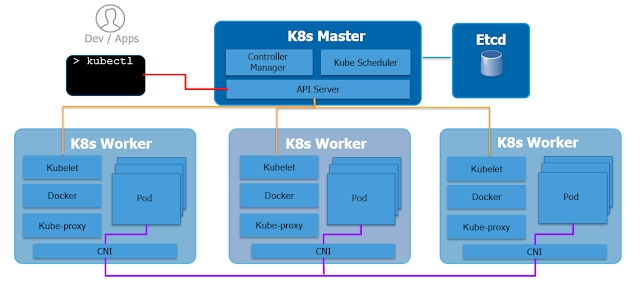Pied Piper 2017 - Hackathon
The enablement portion of the program is behind us. Now it's time to have fun! As we saw in previous posts, all program participants acquired various skills through a series of workshops and competed against each other by creating a project of their own involving elements from all workshops.
The next step was to have a 24 hour Hackathon. Hackathons are events where participants prototype a concept about a common theme, either working individually or in teams. Between illness and various working and internal training commitments only 9 people could join us but it was fun.
The theme we chose for the Hackathon was to improve the app I had developed for the previous year's Presales Conference. The idea of the original app was twofold:
Additionally the app also offered the ability to get social by uploading photos of the event. It was a Cloud Native app underpinned by all our own technology including Pivotal Cloud Foundry and ECS (Elastic Cloud Storage) object storage. On top of that it used a Redis back-end. Besides serving its purpose and helping us enjoy the event and obtaining better feedback it was a great talking point for all sessions related to Platform 3, Digital Transformation and so on.
The code was open sourced and can be accessed in this Github page:
https://github.com/cermegno/SEconference2016
To this date the app has been supporting 4 different events in Australia, Malaysia and Thailand, including a customer facing event like ANZ EMC Forum 2016 that attracted 1000 customers. The following link still shows the live app. The ability to upload photos to ECS was removed for EMC Forum as it wasn't deem appropriate by the event organizers. Instead we pointed to the event's Twitter hashtag.
http://anzforum.cfapps.io/
After the Hackathon we could choose some of the ideas we produced to implement them for our Presales Conference in November. Since this is our own internal conference, there are no boundaries and no idea is crazy enough. Game on!!
We formed 3 teams and started to work in different rooms. However after a while it became apparent to the event host that there was big overlap between the 3 teams. If let to our own devices we would end up duplicating our effort. So in the end, for the sake of a better joint outcome the host decided to change the format of the Hackathon. We combined all ideas into a unified list and then everyone picked a piece to work on. All resulting ideas fit into one of these 3 categories:
Another fundamental change was the backend. It became very clear that in order to implement many of these new features we needed a more sophisticated backend. There were some talks of a relational database but in the end we thought MongoDB would allow us to run more complex queries while still enjoying the schema flexibility typically associated with NoSQL databases.
We discussed various ways of tracking people location during the conference, so that we could take relevant actions, for example sending a quiz to earn extra points to the people in a specific room. We explored 3 different technologies for this purpose: RFID, WIFI and Bluetooth. The first two provided encouraging results but Bluetooth was quickly discarded because of range limitations. At the end of the hackathon various members managed to put together a prototype of a Raspberry PI with an RFID sensor. Scanning RFID tags was creating entries in a cloud instance of MongoDB and a leaderboard was showing points of top scorers ... quite impressive for such a short time
Another idea was a configurable visual display that would track a given variable in a linear fashion by turning on a certain amount of LEDs in a strip, sort of like a thermometer. The prototype that was demoed was able to graph the amount of reviews received for a session versus the total of people in the room. This diagram explained the prototype:
Another team member worked on a Twitter sentiment analysis tool and another one in a prototype of an agenda builder to help attendees of larger events to manage their schedule more efficiently
I always wanted to participate in a Hackathon. This one didn't work out the way I expected but it was great fun regardless. And more importantly it provided us with great ideas to work on together. Looking forward to that.
This is part 3 of a 5 post series about the 2017 Pied Piper program:
1 - Program intro - Must start somewhere
2 - Personal projects
3 - Hackathon
4 - Agile sprints
5 - Tech Summit
Feel free to explore the other articles as well
The next step was to have a 24 hour Hackathon. Hackathons are events where participants prototype a concept about a common theme, either working individually or in teams. Between illness and various working and internal training commitments only 9 people could join us but it was fun.
The theme we chose for the Hackathon was to improve the app I had developed for the previous year's Presales Conference. The idea of the original app was twofold:
- to help us navigate the event and choose between as many as 4 parallel tracks
- to help us obtain better feedback about the different sessions as they happen, as opposed to rely on a survey at the end of the 3 day event.
Additionally the app also offered the ability to get social by uploading photos of the event. It was a Cloud Native app underpinned by all our own technology including Pivotal Cloud Foundry and ECS (Elastic Cloud Storage) object storage. On top of that it used a Redis back-end. Besides serving its purpose and helping us enjoy the event and obtaining better feedback it was a great talking point for all sessions related to Platform 3, Digital Transformation and so on.
The code was open sourced and can be accessed in this Github page:
https://github.com/cermegno/SEconference2016
To this date the app has been supporting 4 different events in Australia, Malaysia and Thailand, including a customer facing event like ANZ EMC Forum 2016 that attracted 1000 customers. The following link still shows the live app. The ability to upload photos to ECS was removed for EMC Forum as it wasn't deem appropriate by the event organizers. Instead we pointed to the event's Twitter hashtag.
http://anzforum.cfapps.io/
After the Hackathon we could choose some of the ideas we produced to implement them for our Presales Conference in November. Since this is our own internal conference, there are no boundaries and no idea is crazy enough. Game on!!
We formed 3 teams and started to work in different rooms. However after a while it became apparent to the event host that there was big overlap between the 3 teams. If let to our own devices we would end up duplicating our effort. So in the end, for the sake of a better joint outcome the host decided to change the format of the Hackathon. We combined all ideas into a unified list and then everyone picked a piece to work on. All resulting ideas fit into one of these 3 categories:
In all events to date the app has been used anonymously to make sure nobody got scared from providing honest and relevant feedback. However we realized that lots of the features we wanted such as the "gamification" of the event required to keep track of who was doing what in order to reward those the participated the most
Another fundamental change was the backend. It became very clear that in order to implement many of these new features we needed a more sophisticated backend. There were some talks of a relational database but in the end we thought MongoDB would allow us to run more complex queries while still enjoying the schema flexibility typically associated with NoSQL databases.
We discussed various ways of tracking people location during the conference, so that we could take relevant actions, for example sending a quiz to earn extra points to the people in a specific room. We explored 3 different technologies for this purpose: RFID, WIFI and Bluetooth. The first two provided encouraging results but Bluetooth was quickly discarded because of range limitations. At the end of the hackathon various members managed to put together a prototype of a Raspberry PI with an RFID sensor. Scanning RFID tags was creating entries in a cloud instance of MongoDB and a leaderboard was showing points of top scorers ... quite impressive for such a short time
Another idea was a configurable visual display that would track a given variable in a linear fashion by turning on a certain amount of LEDs in a strip, sort of like a thermometer. The prototype that was demoed was able to graph the amount of reviews received for a session versus the total of people in the room. This diagram explained the prototype:
Another team member worked on a Twitter sentiment analysis tool and another one in a prototype of an agenda builder to help attendees of larger events to manage their schedule more efficiently
I always wanted to participate in a Hackathon. This one didn't work out the way I expected but it was great fun regardless. And more importantly it provided us with great ideas to work on together. Looking forward to that.
This is part 3 of a 5 post series about the 2017 Pied Piper program:
1 - Program intro - Must start somewhere
2 - Personal projects
3 - Hackathon
4 - Agile sprints
5 - Tech Summit
Feel free to explore the other articles as well







Comments
Post a Comment